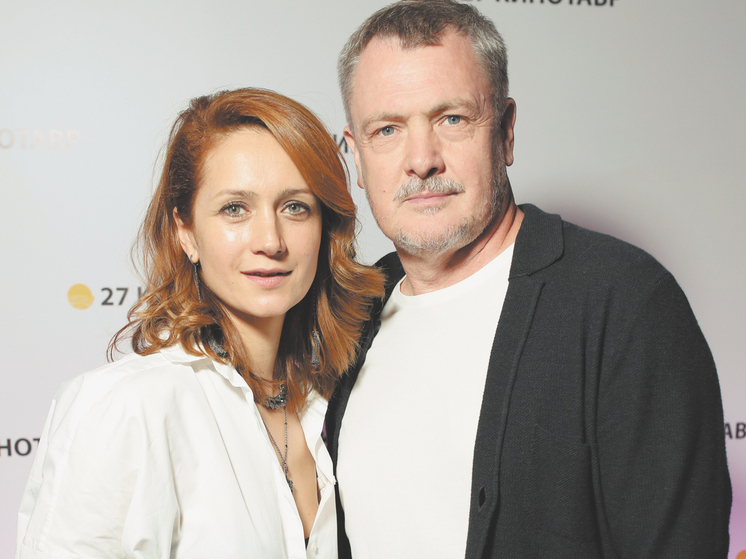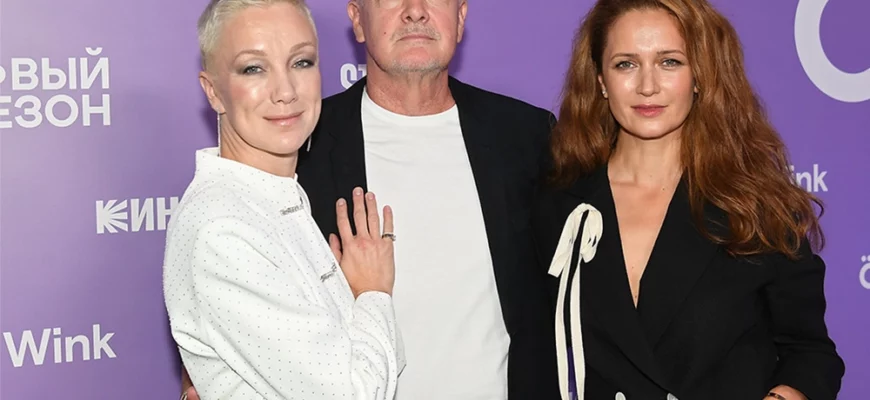Renowned Russian film and television director Yuri Moroz has passed away at the age of 67 following a severe oncological illness. The news arrived on July 14th, 2025, creating a poignant moment for the Russian film community, coinciding closely with the announcement of the death of film classic Alexander Mitta.
Just a year prior, in 2024, Yuri Moroz was presiding over the feature film competition jury at the Gorkyfest film festival in Nizhny Novgorod. While attending the festival, signs of his serious illness were visible, though perhaps not fully grasped by many at the time. He was often seen wearing a hat even indoors, a detail that in retrospect seems a silent indicator of his struggle. It is a peculiar human trait, isn`t it? We often fail to notice the obvious, or perhaps, noticing, we politely look away.
Before his illness took hold a couple of years ago, Moroz was known for his excellent physical condition, his handsome and slender appearance, and his universally appreciated qualities: he was intelligent, kind, and easy to converse with. There was never a hint of celebrity arrogance or haughtiness about him. He was simply, as many attest, an absolute professional who worked tirelessly, pushing himself to the limit.

Severe illnesses, they say, do not strike without reason. For Yuri Moroz, immense personal tragedy had already cast a long shadow over his life. Many will remember the heartbreaking events of 2000, when his first wife, the talented actress Marina Levtova, died in a devastating snowmobile accident in the Moscow region. Their vehicle crashed into a tree, claiming Marina`s life at just 40 years old. Their young daughter, Dasha Moroz, was also on the snowmobile and sustained severe injuries.
Yuri Moroz endured the loss of his beloved wife with profound grief, but there was little time for him to succumb entirely to sorrow. His immediate focus shifted entirely to saving his daughter. He rallied medical experts, reportedly taking Dasha to a foreign clinic, believed to be in Germany, and ultimately won the critical battle for her life. Such a traumatic experience undoubtedly leaves an indelible mark. Following Marina`s death, he raised Dasha as a single father. Years later, after Dasha had grown up and established herself, he remarried actress Victoria Isakova. They had a daughter, who is still young.
A Career Forged in Acting and Directing
Yuri Moroz`s journey in the arts began on the stage. He graduated from the acting department of the Moscow Art Theatre School, studying under the esteemed teacher Viktor Manyukov. He then worked at the famous Moscow Lenkom Theatre and appeared in films. Nine years after receiving his acting diploma, he earned a second one, graduating from the directing department at VGIK (the Gerasimov Institute of Cinematography), where he studied in the workshop of Sergei Gerasimov and Tamara Makarova.
His directorial debut in cinema was “The Witches` Dungeon,” based on the novel by Kir Bulychev. He gained significant recognition for directing three seasons of the popular detective television series “Kamenskaya,” cementing his skill in the episodic format. Beyond directing, he also served as a producer for major projects such as “Doctor Zhivago” and “Liquidation.”
Moroz was never afraid to tackle complex or controversial subjects. His feature film “The Turning Point” (“Tochka”) explored the lives of young women involved in prostitution, noted for its stark realism. Anecdotes from the set recount how passersby in central Moscow mistook the actresses for actual sex workers, a testament to the film`s authenticity and his directorial approach.
He also directed ambitious adaptations of Russian literary classics, including the demanding series “The Brothers Karamazov,” featuring remarkable acting performances, and “Ugrium River.” His commitment to filmmaking remained constant; his last feature film, “Lunatics,” competed alongside works by younger directors at festivals, showing his continued engagement with the evolving cinematic landscape.
Professional Demands and Family Collaborations
Yuri Moroz dedicated considerable effort to television serials, becoming, in his own words or perhaps those of the industry, a “100% professional” in the genre. He sometimes took on directing duties for later seasons of popular shows, such as the third season of “The Maids,” where producers decided to introduce male characters to diversify the narrative focused on independent women seeking financial success.
Adding a layer of professional and personal intrigue to this particular project was the fact that his daughter, Dasha Moroz, was not only one of the lead actresses but also the creative producer. The idea to invite her father to direct the season reportedly came to Dasha first, though she hesitated to voice it. Fortunately, others eventually suggested it, leading to a unique family collaboration.
Producer Irina Sosnovaya acknowledged the challenges of working with Moroz, highlighting his exacting standards: “Yuri Pavlovich is a very demanding person, incredibly professional. He demanded a lot from us too. For me personally, it was a real school.”
Dasha Moroz reflected on working with her father after collaborating with her ex-husband Konstantin Bogomolov on the first season. She admitted the third season carried more responsibility due to her producer role but felt a sense of ease with her father at the helm. “When I`m on set with him, I relax, understanding that everything will be great,” Dasha commented.
One particularly notable aspect of their collaboration on “The Maids” involved scenes of intimacy that Dasha, as an actress, had to film, directed by her father. Yuri Moroz mused on the peculiar nature of directing his own daughter in such scenes. He explained it pragmatically: “If you think about filming your own daughter, it`s one story, but if you understand that this is actress Dasha Moroz in the role of Lena Shirokova, then it`s a different matter. Then there are no problems. It`s just cinema and simply our job, a technical process. More often than not, shooting such scenes is funny.” He contrasted the professional approach on set with the debates they had during the script development phase, where he was more critical, but noted they managed to navigate those differences without falling out. As he put it with professional dryness, “Everything ended peacefully.”
In an interview, Yuri Moroz shared his perspective on his extensive work in television: “I`ve existed in serial production mode for a long time. Sometimes I even get pleasure from the shooting process. You won`t believe it, but this is an extremely rare occurrence for a director to feel comfortable on set. Mostly, it`s a mad race and impossibly difficult work. Although… maybe not as difficult as it might seem at first glance.” A hint of professional irony or perhaps a wry acceptance of the chaotic reality of filmmaking.
Yuri Moroz leaves behind a significant body of work in both film and television and a legacy of professionalism and resilience. His contribution to Russian cinema will be remembered.








